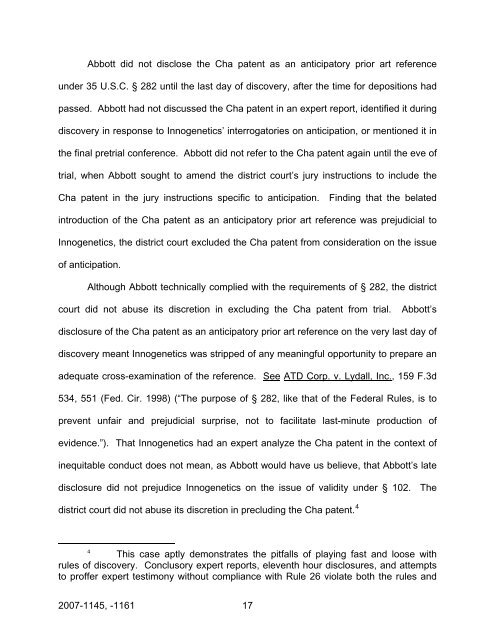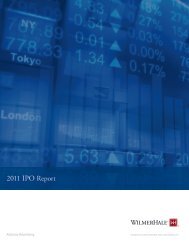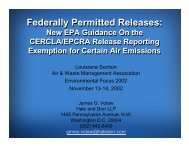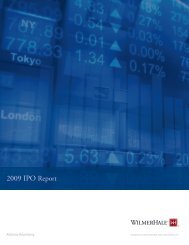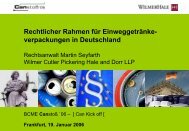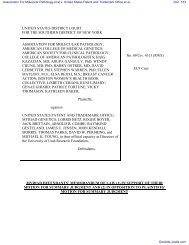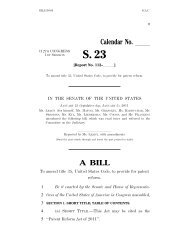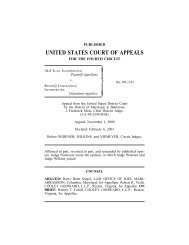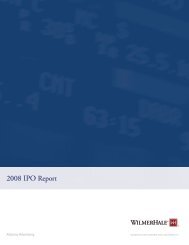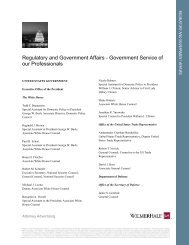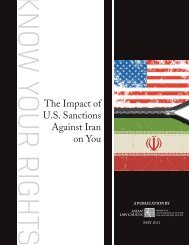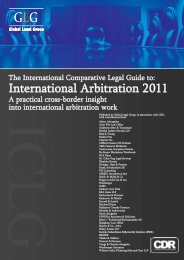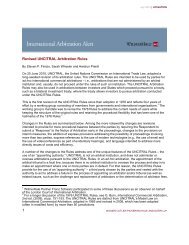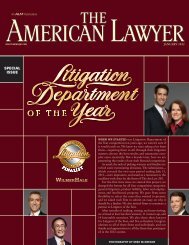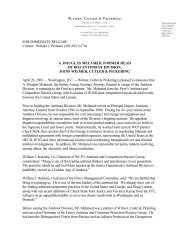Innogenetics, N.V. v. Abbott Laboratories - WilmerHale
Innogenetics, N.V. v. Abbott Laboratories - WilmerHale
Innogenetics, N.V. v. Abbott Laboratories - WilmerHale
You also want an ePaper? Increase the reach of your titles
YUMPU automatically turns print PDFs into web optimized ePapers that Google loves.
<strong>Abbott</strong> did not disclose the Cha patent as an anticipatory prior art referenceunder 35 U.S.C. § 282 until the last day of discovery, after the time for depositions hadpassed. <strong>Abbott</strong> had not discussed the Cha patent in an expert report, identified it duringdiscovery in response to <strong>Innogenetics</strong>’ interrogatories on anticipation, or mentioned it inthe final pretrial conference. <strong>Abbott</strong> did not refer to the Cha patent again until the eve oftrial, when <strong>Abbott</strong> sought to amend the district court’s jury instructions to include theCha patent in the jury instructions specific to anticipation. Finding that the belatedintroduction of the Cha patent as an anticipatory prior art reference was prejudicial to<strong>Innogenetics</strong>, the district court excluded the Cha patent from consideration on the issueof anticipation.Although <strong>Abbott</strong> technically complied with the requirements of § 282, the districtcourt did not abuse its discretion in excluding the Cha patent from trial. <strong>Abbott</strong>’sdisclosure of the Cha patent as an anticipatory prior art reference on the very last day ofdiscovery meant <strong>Innogenetics</strong> was stripped of any meaningful opportunity to prepare anadequate cross-examination of the reference. See ATD Corp. v. Lydall, Inc., 159 F.3d534, 551 (Fed. Cir. 1998) (“The purpose of § 282, like that of the Federal Rules, is toprevent unfair and prejudicial surprise, not to facilitate last-minute production ofevidence.”). That <strong>Innogenetics</strong> had an expert analyze the Cha patent in the context ofinequitable conduct does not mean, as <strong>Abbott</strong> would have us believe, that <strong>Abbott</strong>’s latedisclosure did not prejudice <strong>Innogenetics</strong> on the issue of validity under § 102. Thedistrict court did not abuse its discretion in precluding the Cha patent. 44This case aptly demonstrates the pitfalls of playing fast and loose withrules of discovery. Conclusory expert reports, eleventh hour disclosures, and attemptsto proffer expert testimony without compliance with Rule 26 violate both the rules and2007-1145, -1161 17


